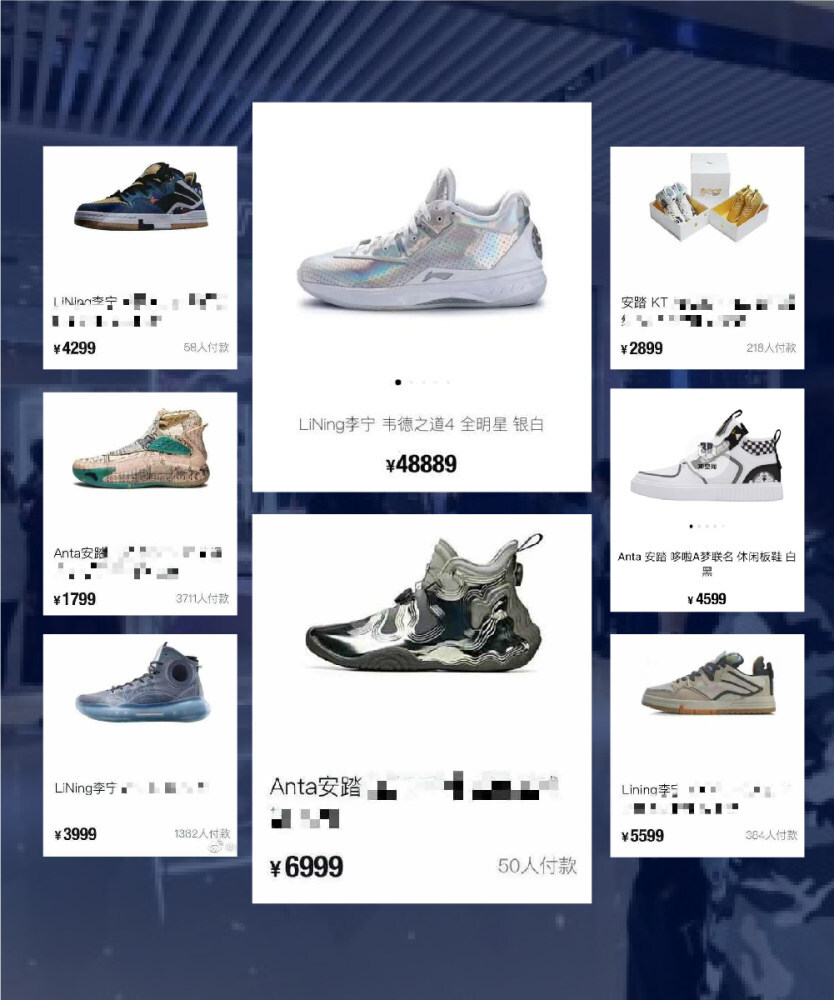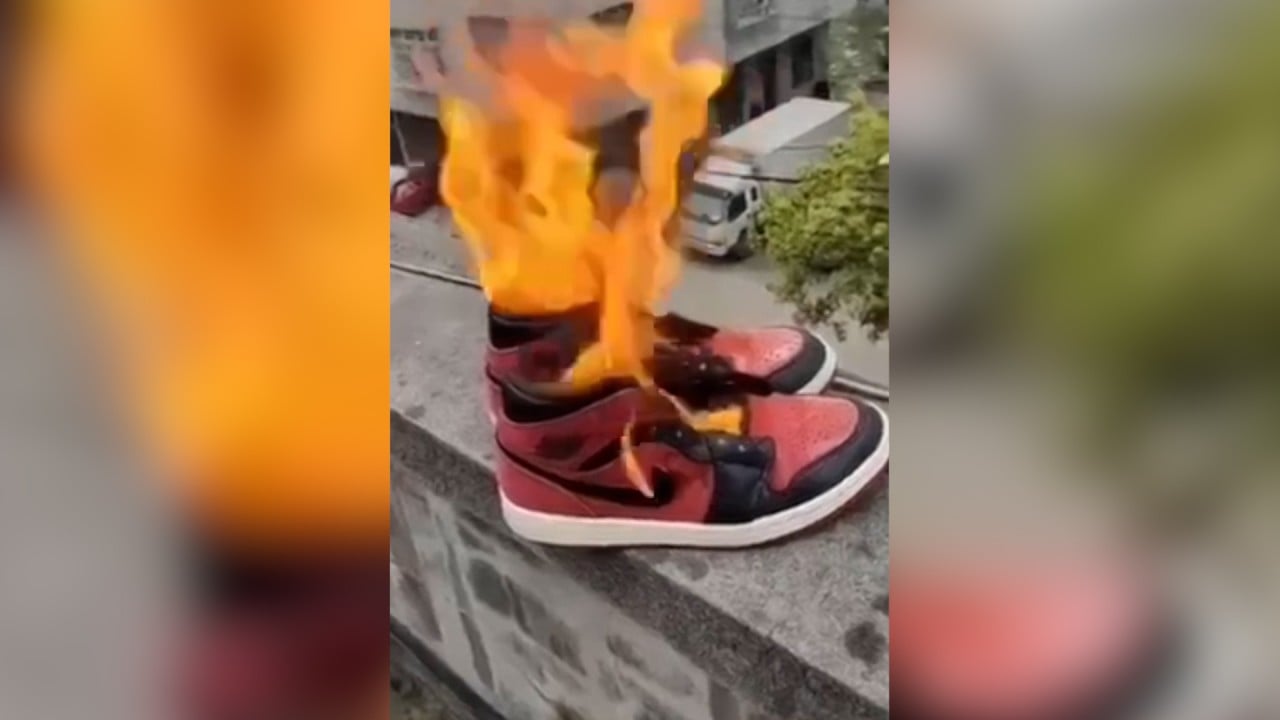
Xinjiang cotton controversy has been a boon for Chinese premier sneaker scalpers
- Prices for Li-Ning’s Way of Wade 4 “All-Star Colourway” rose from a few hundred dollars to over US$7,300 on a popular shoe resale app
- Chinese state media published op-eds saying the price hike is “hurting people’s patriotism”
Chinese sports brands Li-Ning and Anta are experiencing a surge in popularity and price on the secondary market as international footwear brands find themselves facing boycotts from many Chinese consumers over statements expressing concern about allegations of forced labour in Xinjiang.
Since late March, prices for some of Li-Ning’s and Anta’s more popular sneakers jumped so fast it resulted in official op-eds from state media denouncing the secondary market.

The sneaker that attracted the most attention is the Way of Wade 4 “All-Star Colourway” from Li-Ning. Li-Ning made only 100 pairs of the shoe in 2016, which is part of the signature line from retired NBA superstar Dwyane Wade.
On Poizon, a Chinese app for buying and selling shoes and other apparel, the price of the All-Star Colourway rose more than 30 times from 1,500 yuan (US$230) to 48,000 yuan (US$7,330) in the days after the controversy exploded.
The price of a collaboration sneaker between Anta and Doraemon, a Japanese manga series and brand, rose from 499 yuan (US$76) to 4,599 yuan (US$702). The Anta/Doraemon shoe was sold over 9,000 times before Poizon pulled it from the app.
Li-Ning and Anta benefited from widespread calls to boycott international brands such as H&M, Nike and Adidas because they issued statements saying they would not use cotton sourced from Xinjiang. Last December, the US government banned cotton and cotton products from the Xinjiang Production and Construction Corps, one of the region’s largest cotton producers, over concerns that it allegedly used forced labour.
The statements from the international companies kick-started a domestic movement within China to boycott the brands, claiming they were defaming China.
However, Chinese state media has not smiled upon the price speculation of Li-Ning and Anta shoes.
People’s Daily, the Communist Party’s mouthpiece, criticised such action and said it’s “hurting people’s patriotism”. The paper said high prices could limit people’s access to those brands and resellers shouldn’t be profiting off people’s “patriotic support”.
State news agency Xinhua said in a commentary that such price hikes could result in local brands losing consumer trust: “This could end the growth potential of Chinese brands,” the op-ed said.
Chinese customers also expressed mixed feelings about whether to stop buying products from H&M, Nike, Adidas and other brands caught up in the controversy.

Brick and mortar sales for domestic Chinese brands have also benefited from the cotton dispute. Some store managers for Chinese clothing brands told China National Radio that their shops have seen at least a 30 per cent increase in sales on Tuesday. A Li-Ning store manager said about 60 per cent of their sales come from sneakers.
Poizon released a statement on Tuesday and said it had suspended the sale of 23 pairs of sneakers and banned three resellers for raising prices. Among the suspended sneakers, Li-Ning accounted for 14, Anta had four, 361 degrees had four and Peak had one. All four are Chinese brands.


